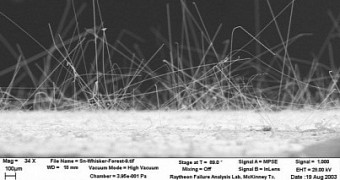Kentucky-based law firm Whitfield Bryson & Mason has filed a lawsuit against Apple on behalf of plaintiffs Zachary Book, Donald Cowart, and John Manners in the United States District Court for Northern California.
The reason? A very faulty MacBook Pro model that tens of thousands of customers are unable to use anymore because of a defective GPU (graphical processing unit) assembly.
Court documents say Apple was aware of the issue
The court papers state that Apple knew about the problem all along, perhaps even before the systems went on sale. However, this allegation remains to be fully verified.
“Aiming to control the lucrative market for high-end laptop computers used by consumers and professionals, in 2011, Apple introduced new fifteen- and seventeen- inch MacBook Pro Laptops powered by two graphic processing chips (‘the 2011 MacBook Pros’),” the papers say.
“Just days after these laptops went on sale, consumers worldwide began reporting to Apple that the 2011 MacBook Pros suffered from random bouts of graphical distortion, system instability and system failures.”
The filing goes to note that Apple failed to respond to these claims, “causing tens of thousands of frustrated and disappointed customers to air their grievances online on websites like Facebook, Reddit, change.org, and Apple’s own discussion forums” and says that all of these complaints are nearly identical in nature, making the issue more than widespread.
Here’s what caused the flaw to emerge in the first place
The filings actually reveal what caused the GPUs to fail inside these MacBook Pro laptops. Apple reportedly used lead-free soldering to connect the GPU to the system’s logic board.
However, this type of soldering “is less reliable is due to the growth of ‘tin whiskers,’ which are small, thin metallic hair-like growths that emerge from the surface of solid tin.” The image above is supplied to provide a visual description of these tin whiskers.
The tin whiskers can cause short circuits in electronics devices, which is exactly what happened in the affected MacBook Pros. It’s also the reason why the E.U. Commission recognizes that “no suitably reliable substitute for lead-based solders has yet been found.” Apple, in its struggle to keep Macs free of any toxic materials, removed lead from its soldering processes.
The second part of the problem was excessive use of thermal paste around the GPU. iFixit noted this finding in its teardown analysis of the computer three years ago.
Whitfield Bryson & Mason’s filing accuses Apple that it “never notified owners or purchasers of the MacBook Pros of the defect or provided a workable solution,” despite allegedly knowing of these defects.

 14 DAY TRIAL //
14 DAY TRIAL //